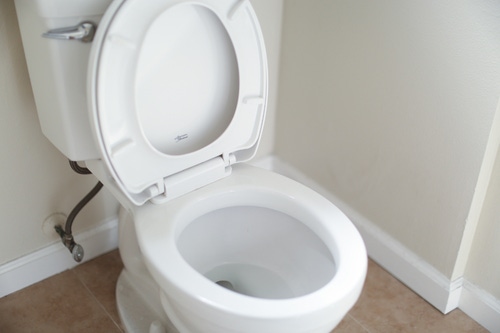The model was found to have 85.1 percent accuracy in classifying stool samples

Your toilet may soon be analyzing your poo – thanks to a ‘Smart Toilet’ tool developed at Duke University that uses AI to detect gastrointestinal issues.
The tech is intended to aid gastroenterologists when looking for signs of inflammatory bowel disease (IBD) or irritable bowel syndrome (IBS).
The specialist would be able to use the AI-based tool to help diagnose the issue and provide the appropriate treatment.
"Typically, gastroenterologists have to rely on patient self-reported information about their stool to help determine the cause of their gastrointestinal health issues, which can be very unreliable," said Deborah Fisher, associate professor of medicine at Duke University and one of the lead authors of the study.
"Patients often can't remember what their stool looks like or how often they have a bowel movement, which is part of the standard monitoring process. The Smart Toilet technology will allow us to gather the long-term information needed to make a more accurate and timely diagnosis of chronic gastrointestinal problems."
Flush it down
The team at Duke said the technology can be retrofitted within the plumbing of an existing toilet. Once a person flushes, the device takes an image – from within the pipe.
Gastroenterologists are then able to use the data collected to analyze the patient’s waste, and see whether any blood was present in order to better understand their condition.
The Smart Toilet tool was developed by analyzing 3,328 unique stool images found online or provided by research participants.
All images were reviewed and annotated by gastroenterologists according to the Bristol Stool Scale — a clinical tool for classifying such matters.
The research team then used a computationally efficient approach to convolutional neural networks and found the algorithm could accurately classify the sample 85.1 percent of the time, while gross blood detection had an accuracy of 76.3 percent.
The Smart Toilet was presented at the recent Digestive Disease Week (DDW) 2021 event.
"We are optimistic about patient willingness to use this technology because it's something that can be installed in their toilet's pipes and doesn't require the patient to do anything other than flush," Sonia Grego, founding director of the Duke Smart Toilet Lab, said.
"An IBD flare-up could be diagnosed using the Smart Toilet and the patient's response to treatment could be monitored with the technology. This could be especially useful for patients who live in long-term care facilities who may not be able to report their conditions and could help improve initial diagnosis of acute conditions."
The Smart Toilet is still in a prototype phase and is not yet available to the public.
The research team behind it is currently developing additional features including stool specimen sampling for biochemical marker analysis which would provide specialists with more data.
This isn’t the first AI-powered potty — just last year, the Rochester Institute of Technology and the University of Rochester Medical Center revealed plans to develop an AI-enabled toilet seat that can monitor heart patient's vital signs.
Sensors in the seat would measure the electrical and mechanical activity of the heart, able to monitor heart rate, blood pressure, and weight – with the aim of reducing re-hospitalization.
The venture secured a $3 million grant from the National Institutes of Health (NIH) last October.
About the Author(s)
You May Also Like


.jpg?width=700&auto=webp&quality=80&disable=upscale)
.jpg?width=700&auto=webp&quality=80&disable=upscale)
.jpg?width=700&auto=webp&quality=80&disable=upscale)
.jpg?width=300&auto=webp&quality=80&disable=upscale)
.jpg?width=300&auto=webp&quality=80&disable=upscale)
.jpg?width=300&auto=webp&quality=80&disable=upscale)

